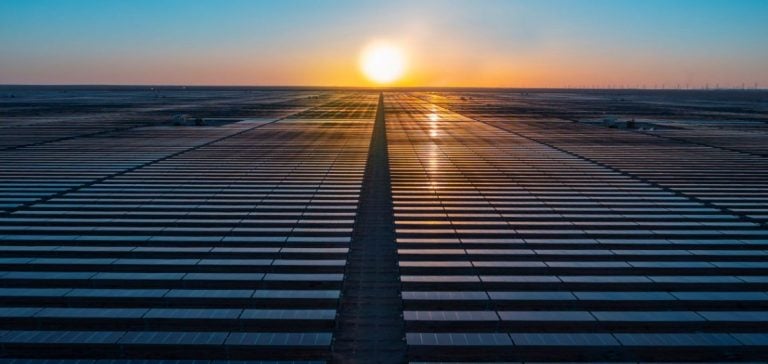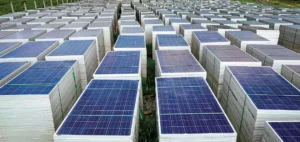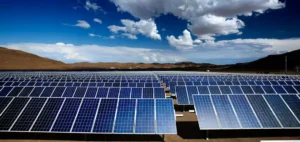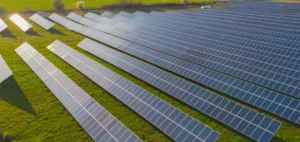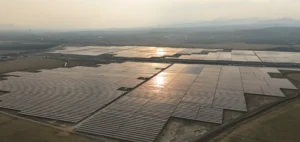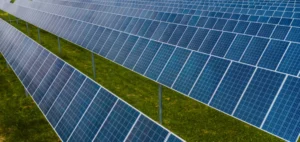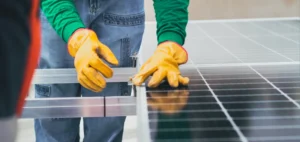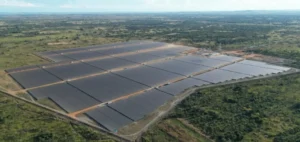JinkoSolar, a global leader in photovoltaic module manufacturing, has announced a new milestone in its partnership with Saudi International Power and Water Company (ACWA Power). This strategic collaboration aims to strengthen solar energy production capacity in Saudi Arabia, significantly contributing to the country’s energy transition initiatives.
The recently signed contract covers the supply of approximately 3 GW of photovoltaic modules for the PIF4 project, a major initiative supported by the Saudi Public Investment Fund (Public Investment Fund, PIF). This project includes two distinct sub-projects: Haden and Al-Khushaybi, totaling a capacity of 3 GW.
Contract and Project Details
The Haden project, with a capacity of 1.2 GW, is awarded to the China Energy Engineering Group Consortium. It will use JinkoSolar’s high-efficiency Tiger Neo N-type 78 series modules, recognized for their exceptional performance and durability. These modules are designed to withstand extreme climatic conditions, including high irradiation, high temperatures, large temperature differences between day and night, and frequent sandstorms in Saudi Arabia.
The Al-Khushaybi project, with a capacity of 1.8 GW, is awarded to the Indian company Larsen & Toubro (L&T). This project will adopt JinkoSolar’s latest Tiger Neo N-type 66 series modules, offering increased energy efficiency and optimal reliability. The integration of these advanced modules ensures stable and sustained energy production, meeting the strict requirements of the Saudi market.
Technology and Advantages of Tiger Neo Modules
JinkoSolar’s Tiger Neo modules incorporate the advanced N-type Tunnel Oxide Passivated Contact (TOPCon) technology. This technology significantly reduces the modules’ degradation rate, ensuring increased longevity and stable long-term performance. Additionally, the reduced temperature coefficients of the Tiger Neo modules allow for better energy efficiency, even in high-temperature environments.
These technical features make Tiger Neo modules an ideal choice for solar projects in Saudi Arabia, where environmental conditions can be particularly demanding. The high reliability of the modules ensures consistent energy production, thereby contributing to the country’s energy production goals.
Impact on Saudi Arabia’s Decarbonization Objectives
This partnership between JinkoSolar and ACWA Power is part of Saudi Arabia’s strategy to achieve carbon neutrality by 2060. By investing in advanced solar technologies, the country strengthens its capacity to produce clean and renewable energy, thereby reducing its dependence on fossil fuels.
Furthermore, JinkoSolar has recently announced its partnership with the Saudi Public Investment Fund (PIF) and other entities to invest in the construction of a manufacturing facility in Saudi Arabia, as mentioned in a statement. This initiative aims to localize solar module production, thereby stimulating the local economy and creating jobs in the renewable energy sector.
Future Prospects and Developments
With this 3 GW contract, JinkoSolar consolidates its position as a leader in the global photovoltaic module market. The collaboration with ACWA Power and other Saudi partners paves the way for future ambitious projects, enhancing JinkoSolar’s presence in the Middle East region.
Future developments include expanding production capacities in Saudi Arabia and adopting even more advanced technologies to meet the growing demand for clean energy. This positive momentum reflects JinkoSolar’s commitment to innovation and sustainability, contributing to a greener and more resilient energy future.

